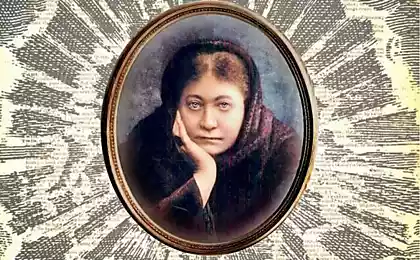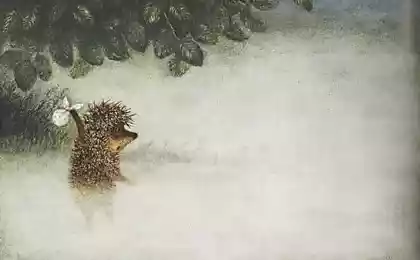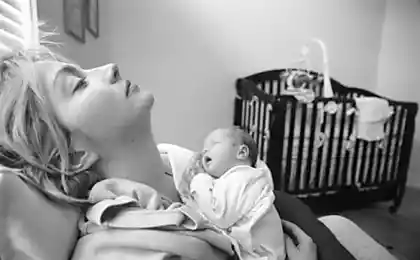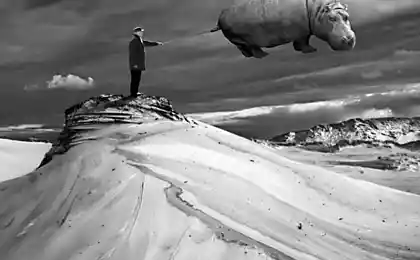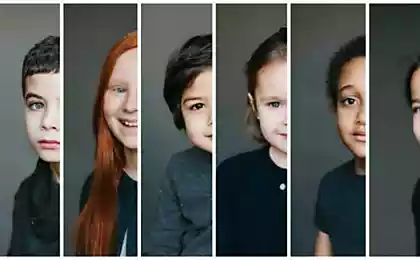473
Mom doesn't like dad praises
Social scripts are interactions with other people and society as a whole, the ways in which we establish and support (or interrupt) contacts — all contacts both in business and in personal relationships, and even in his own inner world (the relationship between parts of the personality between the internal figures, for example).
This subject is more available to the conscious mind due to the fact that we can directly observe (unless, of course, you want to:) exactly how we behave in dealing with the other person. With a group of people. At work. With a partner, with friends or enemies, parents, children.
There are only four basic scenarios and a conditional fifth lies the ability to flexibly switch from one scenario to another and to have in their Arsenal all the ways to maintain relationships.

Four scenarios are divided into "father" and "mother", two on each side — on the left in the concept of bodily insight located scenario, the "parent" (a point on the spleen, so the predominance of destructive "maternity" scenarios can be judged by the (psycho)somatic problems in the left upper quadrant).
"Father" scripts are located on the right, over the liver (and consequently, problems with this and nearby organs may be an indication for operation). Pronounced and pathologists (fixed) social scenarios in school, because the school is the first model of social interaction for a child.
No accident so terrible and traumatic stories of what school life still make you wince many adults.
Now more details about each of the four scenarios:
1. The first ("parent") script: is formed and begins to gain a foothold when the mother gives the message to the child "You're big!", makes "adult" requirements — which often coincides with the time of training and admission to the school, and the child has to survive the internal struggle with our own unwillingness to socialize, a reluctance to separate from parent figures.
Therefore, the destructiveness of the first scenario is that the person chooses to "stay with mother" — in the literal or metaphorical sense, i.e. a person constantly puts themselves in the position of needing care and treatment — that is to say, in need of a Maternal Figure.
The most commonly destructive the first scenario "translates" persistent disease, General ill-health, "not allowing" a person to go forward, to do something significant in their lives, meet societal challenges. In addition to diseases, this may be the creation of person such circumstances for himself where he will always need a Savior, a strong helper, resorting to a variety of (self -) justification, "why didn't I do this."
The sad result of this scenario — somatization, the emergence of this time it is real serious diseases that man has to treat, or lives in a permanent "distress", to which "no exit". The output from the script is possible ONLY through a willful, conscious decision of the man himself!
Only when a person realizes that he no longer wants to live so he can start to rebuild your scenario. And it's important to know and remember, both in relation to himself (nobody will pull out of illnesses or misfortunes, or justifications without my intention) and in relation to other people with a pronounced the first scenario, if they want to "potpisati".
2. The second ("father") scenario: a is formed when the child finds the strength to move away from those who mistreat his mother and go to the father figure in search of support and praise.
Child figuratively or literally asks, "Daddy, praise me!" And if the father (father-figure) responded to this demand and praise, formed a compensatory second scenario, and people will be stuck at getting recognition from the outside, his efforts now are intended to become the "winner", "excellence", "best of the best", the conqueror of all the possible "prize" is "prizes," which he can later "attributed to mother" and how this would "take revenge" for her dislike.
The destructiveness of the second scenario is a constant race for achievements, inability to relax, and the strongest frustration with the slight deviation from the rating of "super plus"; the perfectionism, the desire to be good to others, mood for endless self-demonstration in the hope of a never-ending stream of praise — and again a huge disappointment in the absence of such flow.
The worst thing here is knowing that the love of others — society, the figure of the Father — is always conditional, and can not, no matter how you try to compensate, to compensate for the unconditional love and support, to-Rui must give the Parent figure, and by itself impossibility of achievement of the absolute necessary in this scenario — because there is always someone better, not in this field, as in the other, and "best of the best" face the illusory nature of his "best" position.
3. The third (right) scenario is produced when dad is not enough praise for achievement or (more often) when the child sees that the Pope continues with a pleasure to deal with "that horrible woman", i.e. with the mother (from which the child, mind you, "went to the Pope" because of a lack of unconditional love).
Seeing how mom and dad rejoice in each other, the child begins to suspect that he is not so needed by parents and is trying to become they need. This is the basis of the third scenario of "I'm irreplaceable" ("I save us all!") Representatives of any of the helping professions (and I'm certainly among them) must have this script in a fairly developed form.
If the third scenario is leading, the person literally are not able to refuse to help, with great difficulty stops working — it is only RA, Otay, something making — it (he feels) is needed. An irresistible trap for the third scenario is the message, "Only you!" — that is, "we/I will be able to help you." And if you can resist the call, then congratulations on a successful exit the script.
Destructiveness here is that people does their job, not their lives, and all available resources invests in "salvation" and "help" others. I take quotes these words — many famous phrase about "the damage good and the application use" — and this is also the 3rd scenario. Own usefulness to others is the only joy and the only measure of value itself, which is very sad. Not to mention the fact that such person is very easy and convenient to use.
4. The latter, again left and the "parent" scenario takes effect when the child is out of power — power to get love.
It is based on a heavy experience all the neurotics, "I don't need the world." And sensing this, the child "goes" in the only remaining protection — formula-Changeling "the World does not need me." The fourth scenario is the most difficult to study, being built on despair and a very deep fear, through which people might not dare to cross the fear that he really is not needed.
Conventionally this script is called "marginal," and is manifested in the fact that the person removes all social functions (family, career development, communication, etc.). Sometimes a person creates their own "world" to a minimum by limiting their needs, sometimes it might actually end with the literal marginalization of lifestyle or "simple" loneliness under the motto "I don't trust anyone", "I already tried, and failed, more you won't get me".
Ellen Henriksen: learn to refuse without feeling guilty
Portability
The greatest danger scenario is that internal impulse to development, to desire to become Ourselves and to know, to realize oneself-This might end. In this scenario it is easy to get too far, although "the game" this is very sad — but, unfortunately, the habit of rejecting the help and even the idea that I can do something to help produced quickly enough.
This scenario is often "blame" that people leave therapy without getting the result, that for them "nothing works" and even have already acquired the resource is instantly lost and devalued. In the same way as with the first scenario, the fourth could not work the "pulling" side! Begin to believe, to trust, to ask for and accept help, to see and to fix the result of person must. Only when the inner impulse is alive, and leads people forward — it is possible to prevent the latter scenario. published
Author: Elena Arapova
Source: psy-practice.com/publications/lichnye-otnosheniya/mama-ne-lyubit-papa-ne-khvalit-sotsialnye-stsenarii/
This subject is more available to the conscious mind due to the fact that we can directly observe (unless, of course, you want to:) exactly how we behave in dealing with the other person. With a group of people. At work. With a partner, with friends or enemies, parents, children.
There are only four basic scenarios and a conditional fifth lies the ability to flexibly switch from one scenario to another and to have in their Arsenal all the ways to maintain relationships.

Four scenarios are divided into "father" and "mother", two on each side — on the left in the concept of bodily insight located scenario, the "parent" (a point on the spleen, so the predominance of destructive "maternity" scenarios can be judged by the (psycho)somatic problems in the left upper quadrant).
"Father" scripts are located on the right, over the liver (and consequently, problems with this and nearby organs may be an indication for operation). Pronounced and pathologists (fixed) social scenarios in school, because the school is the first model of social interaction for a child.
No accident so terrible and traumatic stories of what school life still make you wince many adults.
Now more details about each of the four scenarios:
1. The first ("parent") script: is formed and begins to gain a foothold when the mother gives the message to the child "You're big!", makes "adult" requirements — which often coincides with the time of training and admission to the school, and the child has to survive the internal struggle with our own unwillingness to socialize, a reluctance to separate from parent figures.
Therefore, the destructiveness of the first scenario is that the person chooses to "stay with mother" — in the literal or metaphorical sense, i.e. a person constantly puts themselves in the position of needing care and treatment — that is to say, in need of a Maternal Figure.
The most commonly destructive the first scenario "translates" persistent disease, General ill-health, "not allowing" a person to go forward, to do something significant in their lives, meet societal challenges. In addition to diseases, this may be the creation of person such circumstances for himself where he will always need a Savior, a strong helper, resorting to a variety of (self -) justification, "why didn't I do this."
The sad result of this scenario — somatization, the emergence of this time it is real serious diseases that man has to treat, or lives in a permanent "distress", to which "no exit". The output from the script is possible ONLY through a willful, conscious decision of the man himself!
Only when a person realizes that he no longer wants to live so he can start to rebuild your scenario. And it's important to know and remember, both in relation to himself (nobody will pull out of illnesses or misfortunes, or justifications without my intention) and in relation to other people with a pronounced the first scenario, if they want to "potpisati".
2. The second ("father") scenario: a is formed when the child finds the strength to move away from those who mistreat his mother and go to the father figure in search of support and praise.
Child figuratively or literally asks, "Daddy, praise me!" And if the father (father-figure) responded to this demand and praise, formed a compensatory second scenario, and people will be stuck at getting recognition from the outside, his efforts now are intended to become the "winner", "excellence", "best of the best", the conqueror of all the possible "prize" is "prizes," which he can later "attributed to mother" and how this would "take revenge" for her dislike.
The destructiveness of the second scenario is a constant race for achievements, inability to relax, and the strongest frustration with the slight deviation from the rating of "super plus"; the perfectionism, the desire to be good to others, mood for endless self-demonstration in the hope of a never-ending stream of praise — and again a huge disappointment in the absence of such flow.
The worst thing here is knowing that the love of others — society, the figure of the Father — is always conditional, and can not, no matter how you try to compensate, to compensate for the unconditional love and support, to-Rui must give the Parent figure, and by itself impossibility of achievement of the absolute necessary in this scenario — because there is always someone better, not in this field, as in the other, and "best of the best" face the illusory nature of his "best" position.
3. The third (right) scenario is produced when dad is not enough praise for achievement or (more often) when the child sees that the Pope continues with a pleasure to deal with "that horrible woman", i.e. with the mother (from which the child, mind you, "went to the Pope" because of a lack of unconditional love).
Seeing how mom and dad rejoice in each other, the child begins to suspect that he is not so needed by parents and is trying to become they need. This is the basis of the third scenario of "I'm irreplaceable" ("I save us all!") Representatives of any of the helping professions (and I'm certainly among them) must have this script in a fairly developed form.
If the third scenario is leading, the person literally are not able to refuse to help, with great difficulty stops working — it is only RA, Otay, something making — it (he feels) is needed. An irresistible trap for the third scenario is the message, "Only you!" — that is, "we/I will be able to help you." And if you can resist the call, then congratulations on a successful exit the script.
Destructiveness here is that people does their job, not their lives, and all available resources invests in "salvation" and "help" others. I take quotes these words — many famous phrase about "the damage good and the application use" — and this is also the 3rd scenario. Own usefulness to others is the only joy and the only measure of value itself, which is very sad. Not to mention the fact that such person is very easy and convenient to use.
4. The latter, again left and the "parent" scenario takes effect when the child is out of power — power to get love.
It is based on a heavy experience all the neurotics, "I don't need the world." And sensing this, the child "goes" in the only remaining protection — formula-Changeling "the World does not need me." The fourth scenario is the most difficult to study, being built on despair and a very deep fear, through which people might not dare to cross the fear that he really is not needed.
Conventionally this script is called "marginal," and is manifested in the fact that the person removes all social functions (family, career development, communication, etc.). Sometimes a person creates their own "world" to a minimum by limiting their needs, sometimes it might actually end with the literal marginalization of lifestyle or "simple" loneliness under the motto "I don't trust anyone", "I already tried, and failed, more you won't get me".
Ellen Henriksen: learn to refuse without feeling guilty
Portability
The greatest danger scenario is that internal impulse to development, to desire to become Ourselves and to know, to realize oneself-This might end. In this scenario it is easy to get too far, although "the game" this is very sad — but, unfortunately, the habit of rejecting the help and even the idea that I can do something to help produced quickly enough.
This scenario is often "blame" that people leave therapy without getting the result, that for them "nothing works" and even have already acquired the resource is instantly lost and devalued. In the same way as with the first scenario, the fourth could not work the "pulling" side! Begin to believe, to trust, to ask for and accept help, to see and to fix the result of person must. Only when the inner impulse is alive, and leads people forward — it is possible to prevent the latter scenario. published
Author: Elena Arapova
Source: psy-practice.com/publications/lichnye-otnosheniya/mama-ne-lyubit-papa-ne-khvalit-sotsialnye-stsenarii/







